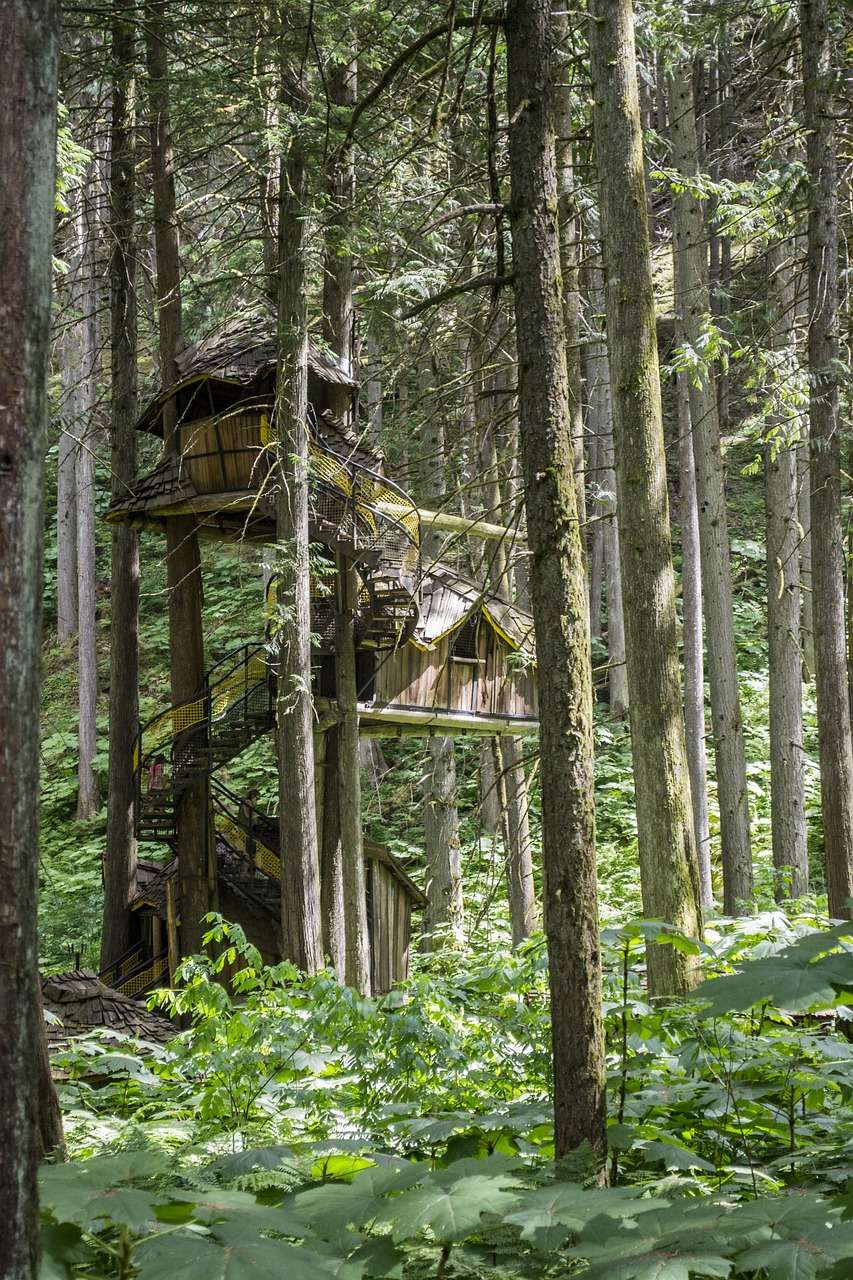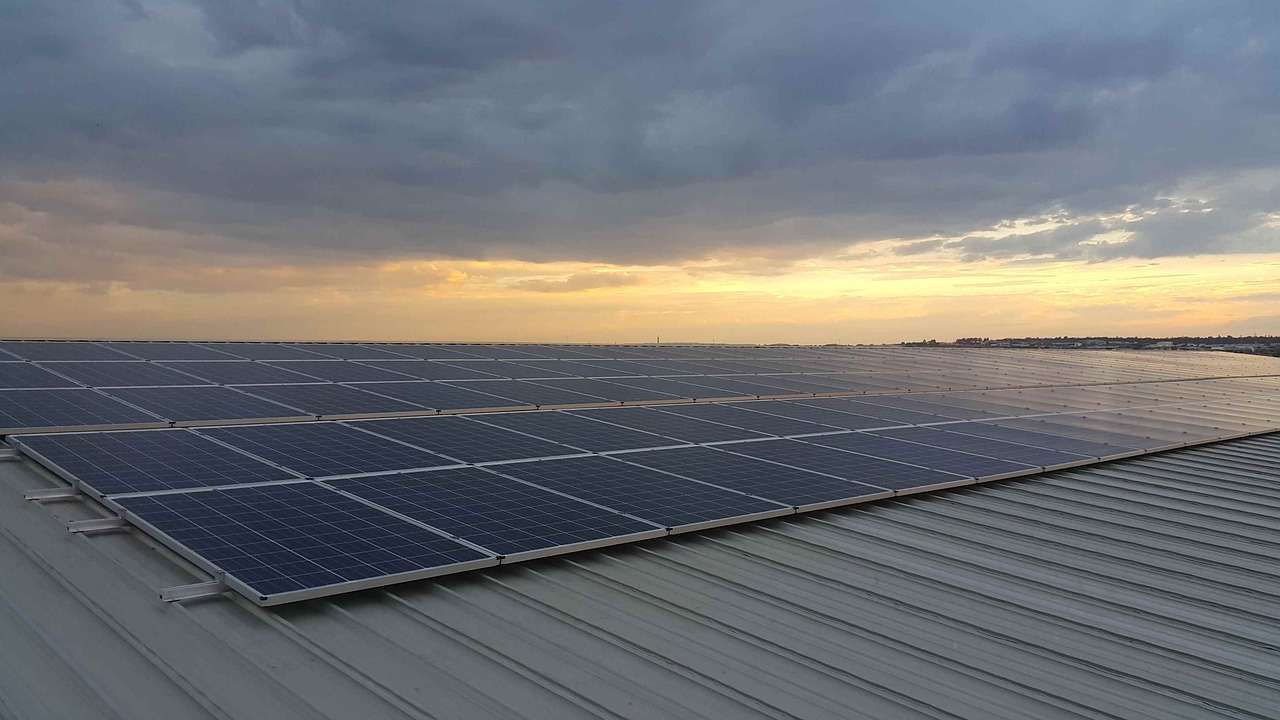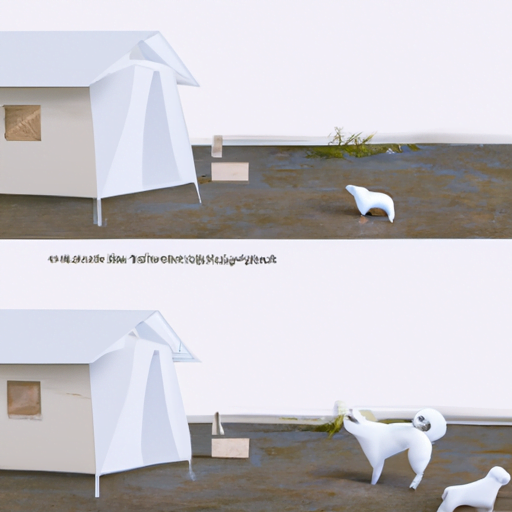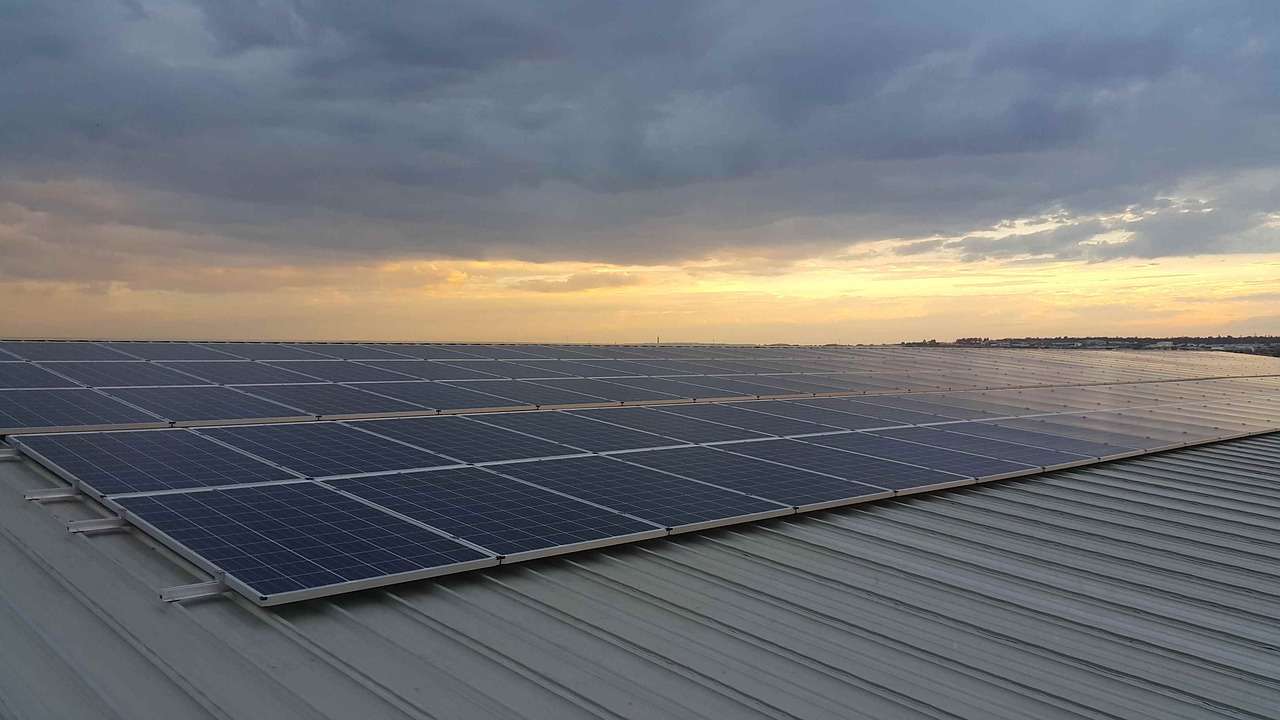Living off-grid means disconnecting from the traditional power and water supply systems and relying on renewable energy sources and self-sustaining practices. But what about the furry companions we love so dearly? Can we still have pets while living off-grid? The answer is a resounding yes! In fact, having pets can bring a myriad of benefits to your off-grid lifestyle. From security and companionship to helping with sustainable practices, pets can thrive in an off-grid environment just as much as their human counterparts. So, if you’re considering the off-grid lifestyle and wondering if you can still enjoy the company of a furry friend, rest assured that the two can seamlessly coexist.

Considerations for keeping pets off-grid
Living off-grid can be a rewarding and sustainable lifestyle choice, but it comes with its own set of challenges. When it comes to keeping pets off-grid, there are several important considerations to keep in mind. From the availability of resources to the health and safety concerns, every aspect needs to be carefully considered to ensure the well-being of both the pets and the off-grid life.
Availability of resources
One of the first considerations when keeping pets off-grid is the availability of resources. Living off-grid typically means relying on alternative sources of energy and water, which may not always be abundant. It’s essential to determine whether you have enough resources to meet the needs of your pets, including food, water, and shelter. Assessing the availability of these resources will help you make informed decisions about the type and number of pets to keep off-grid.
Suitability for off-grid living
Not all pets are well-suited for off-grid living. Some animals require a more controlled and regulated environment, which may be challenging to maintain off-grid. Before deciding on a pet, consider their natural habitat and whether it aligns with the off-grid lifestyle. Pets that can adapt to alternative lifestyles and thrive in self-sufficient environments are generally a better fit for off-grid living.
Requirements of specific pets
Different pets have varying needs and requirements. While some pets may be perfectly content with minimal care and attention, others require more specialized care and specific living conditions. Consider the specific needs of the pets you are interested in and assess whether you can meet those requirements in an off-grid setting. For example, certain reptiles require precise temperature and humidity control, which can be difficult to achieve off-grid.
Health and safety concerns
Living off-grid presents unique health and safety concerns for pets. Without easy access to veterinary care, it’s crucial to take preventative measures and be prepared for potential health issues. Regular check-ups and proper vaccinations are essential to keep your pets healthy. Additionally, it’s important to create a safe environment to protect them from potential dangers, such as predators, extreme weather conditions, and poisonous plants.
Choosing the right pets for off-grid living
When it comes to off-grid living, choosing the right pets plays a significant role in their overall well-being and your ability to provide for their needs. Here are some factors to consider when selecting pets for an off-grid lifestyle:
Low-maintenance pets
Opting for low-maintenance pets can make off-grid living more manageable. Animals such as cats, certain dog breeds, or small rodents like guinea pigs and hamsters require less attention and can adapt to self-sufficiency more easily. These pets generally have lower food and space requirements, making them suitable for off-grid living.
Pets that can adapt to alternative lifestyles
Certain pets are highly adaptable and can thrive in alternative lifestyles. Dogs, in particular, can be versatile companions in off-grid living. They are often able to adjust to different environments, as long as their basic needs are met. Breeds known for their adaptability and endurance, like Australian Shepherds or Border Collies, may be good choices for off-grid living.
Pets with smaller space requirements
Living off-grid often means having limited space, so it’s important to select pets that have smaller space requirements. Animals like rabbits, birds, or even small reptiles can be suitable companions in such situations. These pets can be easily accommodated in smaller living spaces, making them more practical options for off-grid living.

Providing sustenance for pets off-grid
Ensuring that your pets have access to proper nutrition is essential for their overall health and well-being. While living off-grid, there are several considerations when it comes to feeding your pets:
Feeding options for pets
Depending on the availability of resources and personal preferences, there are multiple feeding options for pets off-grid. You can choose to prepare homemade meals using locally sourced ingredients. This approach allows you to control the quality and nutritional content of your pets’ food. Alternatively, you can opt for commercially available pet food that can be stored for longer periods without refrigeration.
Growing and producing pet food
Another option for providing sustenance for pets off-grid is to grow and produce their food. You can create a small garden or greenhouse to cultivate vegetables and herbs that are safe for your pets to consume. Additionally, you may consider raising small animals, such as chickens or rabbits, to provide fresh and sustainable protein sources for your pets.
Foraging and hunting opportunities
Living off-grid often means being closer to nature, which can provide opportunities for foraging and hunting. Depending on the local wildlife and safety considerations, you can explore natural food sources for your pets. For example, if you live in an area with abundant fish, you may consider adding fresh fish to your pets’ diet. However, it’s important to ensure that any foraged or hunted food is safe and does not pose health risks to your pets.
Ensuring a safe environment for pets off-grid
Creating a safe environment is crucial for the well-being of your pets when living off-grid. The following considerations can help you provide a secure space for your furry companions:
Securing boundaries and preventing escapes
When living off-grid, it’s important to have secure boundaries to prevent pets from escaping. Consider using fencing or natural barriers to define the boundaries of your property. Regularly inspect and maintain these boundaries to ensure they remain intact and capable of keeping your pets safe.
Protecting pets from predators
Living in a remote area might expose your pets to potential predators. Depending on your location, these predators could be wild animals or even neighboring domestic animals. Take necessary precautions to protect your pets, such as securing them in a safe and enclosed area during vulnerable times, like nighttime. Constructing predator-proof shelters can also provide an extra layer of protection.
Creating shelter for pets
In an off-grid living situation, it’s vital to provide adequate shelter for your pets. Their shelters should protect them from extreme weather conditions, such as excessive heat or cold. Depending on the type of pets you have, consider providing insulated or shaded areas for them to seek refuge during adverse weather. Ensure that their shelter is well-ventilated and comfortable throughout the year.

Maintaining pet health off-grid
Keeping your pets healthy off-grid requires careful planning and proactive measures. Here are some considerations for maintaining pet health in an off-grid lifestyle:
Access to veterinary care
Finding access to veterinary care can be challenging when living off-grid, particularly in remote areas. Research and identify veterinarians or animal clinics within a reasonable distance from your location. Establish a relationship with them and keep their contact information readily available. It’s also a good idea to learn basic veterinary first aid skills to handle minor issues that may arise.
Natural remedies and alternative treatments
When access to traditional veterinary care is limited, utilizing natural remedies and alternative treatments can be beneficial for your pets. Explore holistic approaches and home remedies that can address minor health issues or alleviate discomfort. However, it’s essential to consult with a professional veterinarian before implementing any alternative treatments.
Preventing common health issues
Prevention is key to maintaining your pets’ health off-grid. Ensure that your pets receive regular vaccinations and preventative treatments for parasites, such as fleas and ticks. Keep a vigilant eye on their overall well-being and address any signs of potential health issues promptly. Regular exercise, a balanced diet, and proper grooming can also contribute to overall health and prevent common ailments.
Building a routine for pets off-grid
Creating a routine for your pets is crucial to promoting their physical and mental well-being. When living off-grid, it’s important to establish a balanced and structured daily schedule that meets their needs while accommodating your off-grid lifestyle:
Establishing exercise and playtime
Pets, especially dogs, require regular exercise and mental stimulation. Dedicate time each day for exercise and play sessions that align with your off-grid routine. This could include activities such as hiking, playing fetch, or engaging in interactive games. Providing opportunities for your pets to engage in physical and mental activities will help prevent boredom and promote their overall happiness.
Balancing pets’ needs with off-grid chores
Off-grid living often involves various chores and tasks to ensure self-sustainability. It’s important to strike a balance between attending to your pets’ needs and fulfilling your off-grid responsibilities. Plan your daily chores around your pets’ routine, allowing time for feeding, grooming, and playtime. Delegate and involve other family members or members of your off-grid community to share responsibilities and ensure that your pets receive adequate care.
Creating a structured daily schedule
Pets thrive on consistency and routine. Establishing a structured daily schedule will help create a sense of stability for your pets in an off-grid setting. Set specific times for feeding, exercise, play, and rest. Having a consistent routine will not only benefit your pets but also make it easier for you to manage your off-grid lifestyle effectively.

Training and behavior management off-grid
Training and managing your pets’ behavior are crucial aspects of keeping them happy and safe off-grid. Here are some considerations for training and behavior management in an off-grid setting:
Obedience training in an off-grid setting
Obedience training is essential for off-grid living, where control and discipline may be particularly valuable. Teach your pets basic commands, such as sit, stay, and come, to ensure their safety and your ability to manage them effectively. Utilize positive reinforcement techniques, such as treats and praise, to reward desirable behaviors and encourage successful training.
Addressing behavior issues in remote locations
Living off-grid can present unique challenges when it comes to addressing behavior issues in pets. Without immediate access to professional trainers or behaviorists, it’s important to address behavioral problems early on and take proactive measures. Seek guidance from off-grid pet communities, online resources, or books that specialize in behavior modification techniques. Be patient and consistent in addressing and correcting undesirable behaviors.
Utilizing positive reinforcement techniques
Positive reinforcement is effective in encouraging desirable behaviors and managing your pets’ behavior off-grid. Reward your pets with treats, praise, or other forms of positive reinforcement when they exhibit appropriate behaviors. Avoid punishment-based training methods, as they can create fear and anxiety in your pets, which can be counterproductive to their overall well-being.
Socializing pets off-grid
Just like humans, pets need social interaction and companionship. Here are some considerations for socializing your pets while living off-grid:
Engaging pets with other animals in the area
If you live in an area with other animals, consider allowing supervised interactions between your pets and their counterparts. This can provide socialization opportunities and stimulation for your pets. However, it’s crucial to ensure the safety and compatibility of the animals involved, especially when it comes to potential aggressiveness or transmission of diseases.
Ensuring sufficient human interaction for pets
Pets thrive on human interaction and companionship. Make sure to dedicate quality time each day for one-on-one interaction with your pets. Engage in activities that strengthen the bond between you and your pets, such as grooming, training sessions, or simply cuddling. Regular human interaction will help prevent feelings of isolation or loneliness in your pets.
Participating in off-grid pet communities
Off-grid living can be isolating at times, both for humans and pets. Consider joining or creating off-grid pet communities where like-minded individuals share their experiences, insights, and challenges of keeping pets off-grid. Participating in these communities can provide support, advice, and opportunities for socialization for both you and your pets.
Legal considerations for keeping pets off-grid
When living off-grid, it’s important to be aware of and comply with any relevant local regulations and restrictions regarding pet ownership. Consider the following legal considerations:
Researching local regulations and restrictions
Different areas may have specific regulations and restrictions regarding pet ownership, even in off-grid locations. Research and familiarize yourself with local laws to ensure you’re in compliance. Be aware of any restrictions on the number or type of pets allowed, as well as regulations regarding vaccinations, licensing, and leash laws.
Registering pets in off-grid locations
Some off-grid locations may require pet owners to register their pets. Registering your pets ensures that they can be identified and traced back to you if necessary. Check with local authorities or animal control offices to determine whether pet registration is required in your off-grid area and follow the necessary procedures.
Understanding wildlife protection laws
Living off-grid often means being in close proximity to wildlife. Familiarize yourself with wildlife protection laws and regulations to ensure that you’re not infringing upon protected species or their habitats. Take necessary precautions to coexist peacefully with wildlife while prioritizing the safety and well-being of your pets.
Preparing for emergencies with pets off-grid
Emergency preparedness is crucial when living off-grid, and this includes planning for your pets’ safety and well-being. Here are some considerations for preparing for emergencies with pets off-grid:
Creating emergency kits for pets
Prepare emergency kits specifically tailored for your pets. Include essential supplies like food, water, medication, identification tags, and a first aid kit. Consider their specific needs, such as any necessary medical records or specialty items, and keep the kits readily accessible in case of evacuation or emergencies.
Planning for natural disasters
Living off-grid doesn’t exempt you from the risks of natural disasters. Research and understand the potential natural disasters in your area, such as wildfires, floods, or extreme weather events. Develop evacuation plans and designate safe meeting points for your pets. Ensure that you have necessary supplies and transport options to evacuate your pets quickly and safely if needed.
Developing evacuation strategies
In the event of an emergency, it’s essential to have evacuation strategies in place for your pets. Identify pet-friendly accommodations or safe locations where you and your pets can seek refuge if necessary. Share your evacuation plans with family members, friends, or neighbors, and establish a communication plan to ensure everyone is aware of the protocols in case of emergencies.
Living off-grid can offer a unique and fulfilling lifestyle, but it requires careful consideration and planning when it comes to keeping pets. By considering the availability of resources, suitability for off-grid living, specific pet requirements, health and safety concerns, routine building, training and behavior management, socialization, legal considerations, and emergency preparedness, you can create an environment where both you and your pets can thrive in an off-grid setting.




